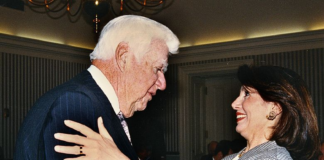“Urbānitūs – the magazine of geo-urbanism” is frankly not a journal for the faint-hearted. At 6,000 words plus, our adjacent opening day monograph on the urban history surrounding Austin’s downtown politics is a dense read. It certainly stands in contrast to the supposed journalistic imperative of our age: shorter, shorter and shorter to accommodate the disappearing attention span of the reading public. I’m familiar with the argument. But along with my four fellow travelers who have been piecing this endeavor together for the last six months, we’ve rejected it.
For an understanding of global complexity sufficient for the many challenges of our age requires that we strive to get the upper hand on the foundational dynamics of it all: the dense lives of cities. They are the largest things humanity has ever constructed while at the same time being the smallest unit of geopolitical organization. Said differently, cities are the primary colors of civilization. Just as red, yellow and blue are at the base of the artist’s palette, yielding every other color on the spectrum when mixed, so cities are the primary unit of social and political organization. And in an era when the unit at the top of the governance spectrum, the nation-state, is struggling to cope with the challenges of interdependency – climate change, mass migrations, pandemics to name a few – the burdens fall back on those actors with the broadest shoulders. Sovereignty, the ability of national governments to do what they want at home and abroad via military or economic power, is not what it used to be. Which means that mayors, council members, commissioners, local activists and ultimately the citizens they serve are stepping into a new role. And roles.
In a word, this is “geo-urbanism,” the term we coined to describe this. Cities have never been as sweepingly affected by global events as they are today. And conversely, cities have never been the geopolitical actors on the global stage that they are today. At least not since the eras of the Greek or Italian city states or the Germanic Hanseatic League. Austin, where we live, is our case in point. It is a member of the “G-40 Cities” coalition to combat carbon emissions. It leads the emerging “creative cities” where tech, music and culture come together. It is part of the global movement of “smart cities,” using technology to deliver better and more efficient services. When the Texas legislature outlawed so-called “Sanctuary Cities” who refuse to target the undocumented, Austin declared itself a “Freedom City” to do the same thing. We’ll be looking at how other cities are asserting themselves as well. But, first things first, we’re starting at home to explore geo-urbanism.
We’ll have much to say on this foundational concept in the days and weeks ahead as we get our editorial house in order. You’ll hear more from us on another concept we’ve hatched, “pre-quelism.” This is our way to describe our aspiration to pull back the starting point in many historical narratives to dates and events far earlier than those conventionally recognized. Examples of this effort are in our monograph on Austin’s downtown. We’ll be telling you more about our team beyond the founding cast in the “About” section. Young, diverse writers whose experience reflects the spirit and aspirations of Urbānitūs, will be central to the endeavor.
The scope and subject matter will be broad. But for now, let me quote Piero Bassetti, editor-in-chief of the magazine “Glocalism,” one of the many places where we’ve found inspiration:
“Cities are the spaces in which the global economy finds its raison d’être, and global politics finds its crises and new expression. Cities are the confluence of technological, material, monetary and migratory flows. Above all, they are the manifestation of the new society, of innovation, and of the of the concretization of heretofore unknown possibilities for humanity.”
We think that describes Austin – and other similarly dynamic cities as well. This is our palette.
We appreciate both your time and curiosity even if our digital digs are a bit spare. Graciously sheltering us at the moment is Qcue, a software firm located in the heart of Austin’s South 1st Street, whose technical team in particular has put its shoulder to our temporary wheel. We’re calling this “inQbation” but for the incubators it is work atop already busy day jobs. My gratitude is deep.
I’d rather, of course, be showing you around our editorial house once the plumbing is in, the wiring complete, the windows hung. But since we decided to build our first project around a symbolic local election, it made sense to open our doors well…, before we really have any doors. So please step through the temporary curtains and have a look around our domain.
Oh yes, Urbānitūs – uur-bahn-eee-toos – is our declension of the Latin noun for “city life” or “in the fashion of a city” slightly modified to include “us,” the writers, our readers, and all who make up the cities in which we live. I’ve dubbed this column “Uruk,” meanwhile, as this was the name of the world’s first city, in Mesopotamian Sumer, in the mid-4th Millennium B.C. A primary urban color, if you will. As I say, attention to first things first.
Send thoughts, criticisms, inspiration or advice on plumbing fixtures for our new abode to editor@urbanitus.com.
If you like what you’ve been reading, please click here to subscribe and we will send you updates and our newsletter.






Uruk, Erech, Iraq….
Do I make sense.
Hello David,
I don’t know if the research of Dr. Michael Hudson (UMKC) would be of value to your group but the utility of capital in the city, which he defines, no doubt affects what we see. Perhaps an interview could offer some opportunity for discovery. Keep up the great work. Your father is looking !
Tom farley